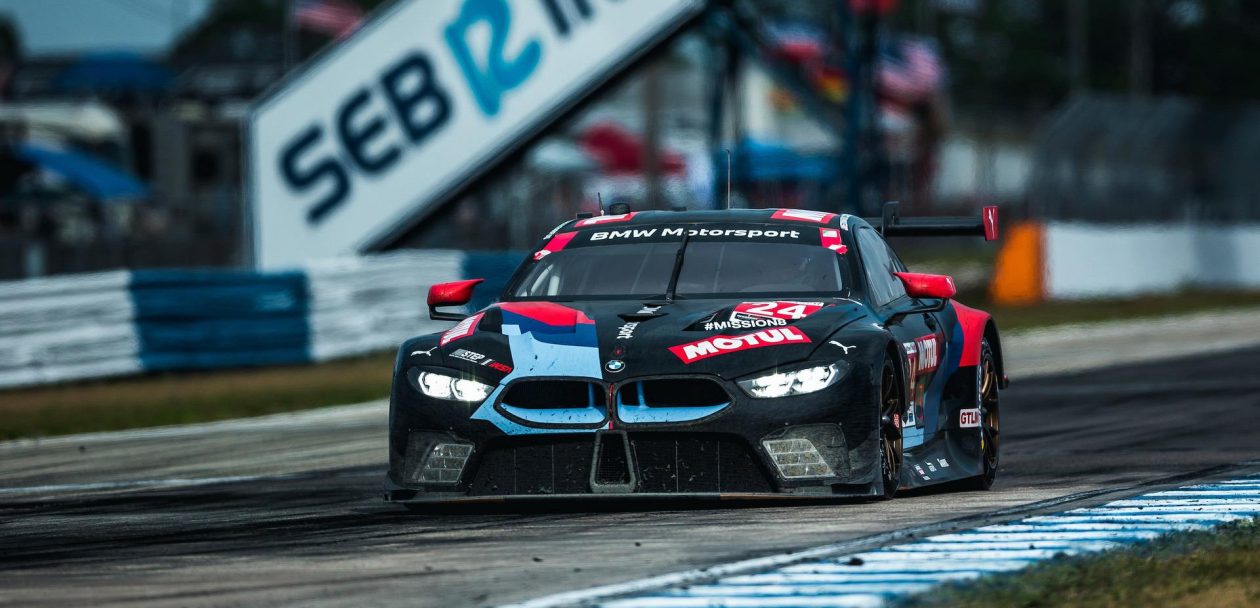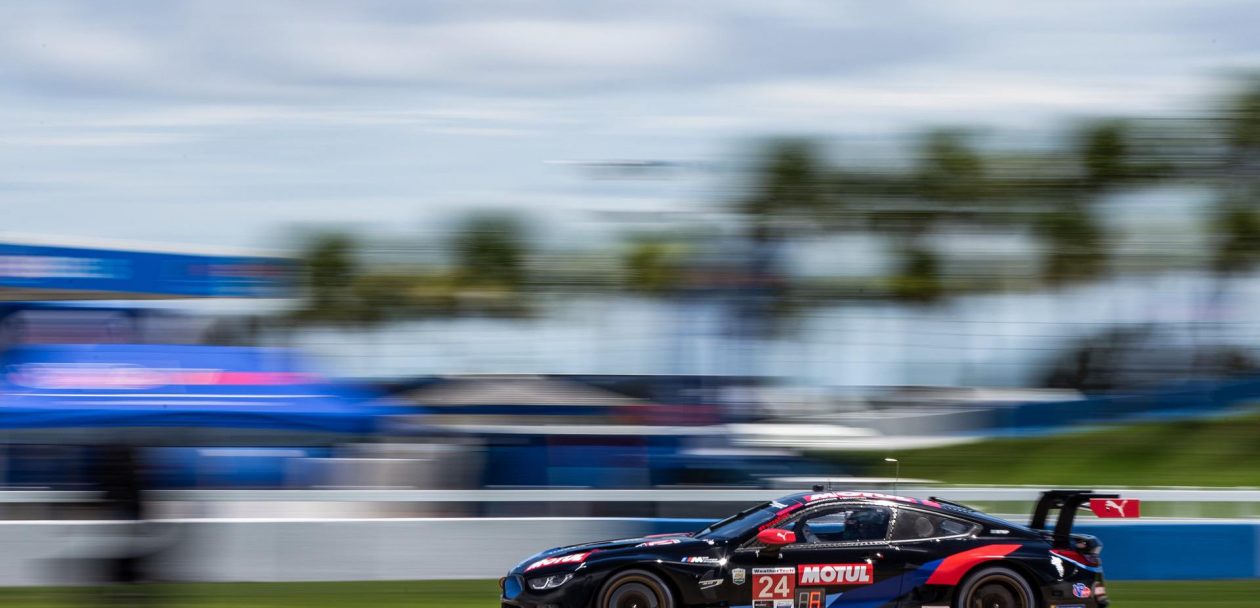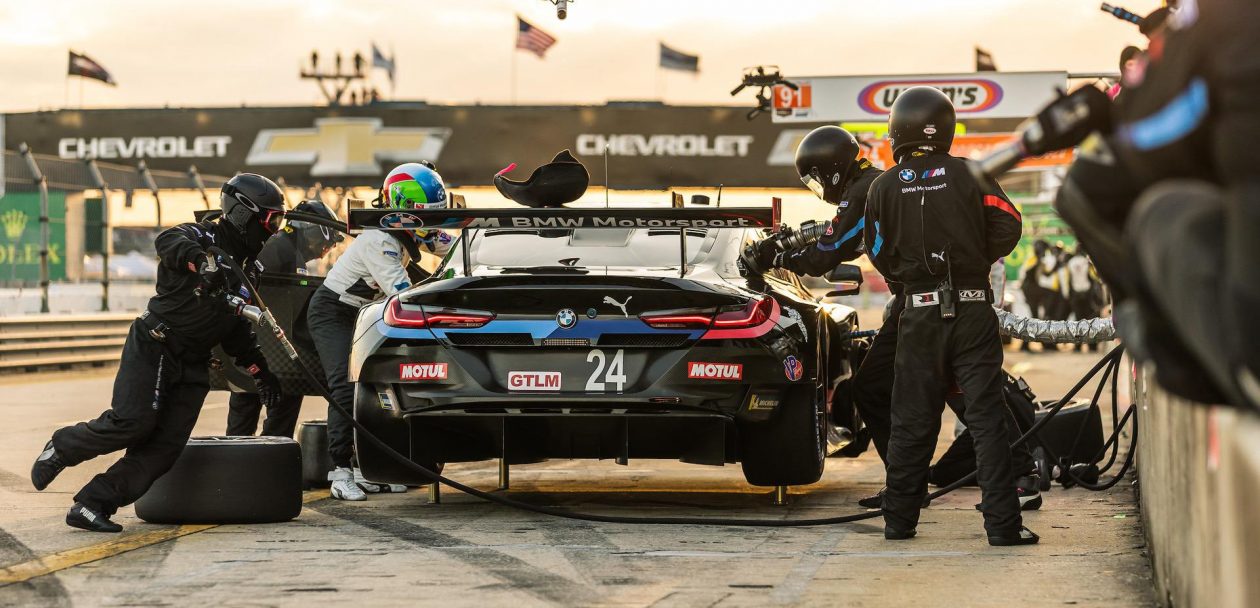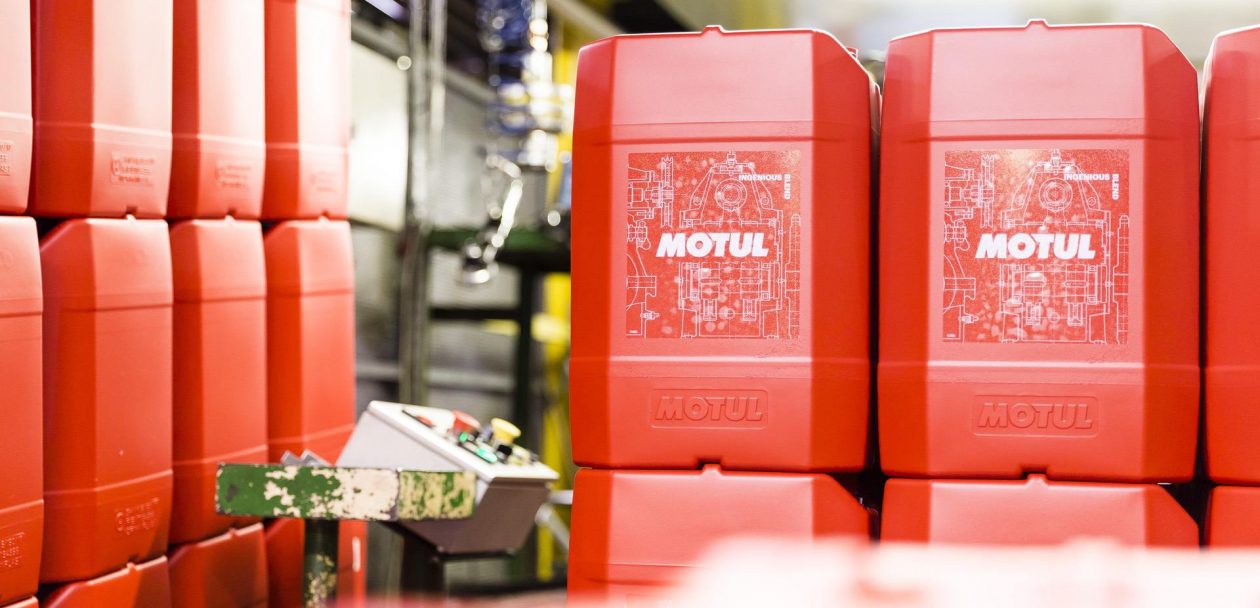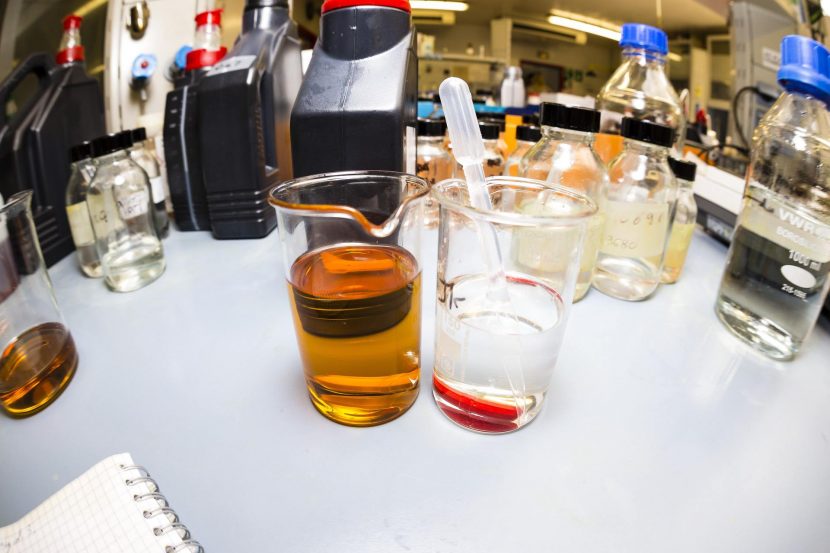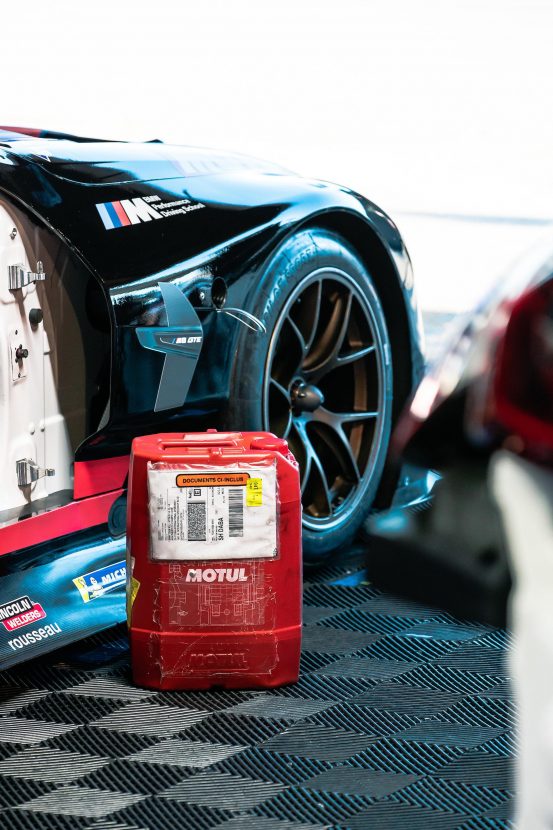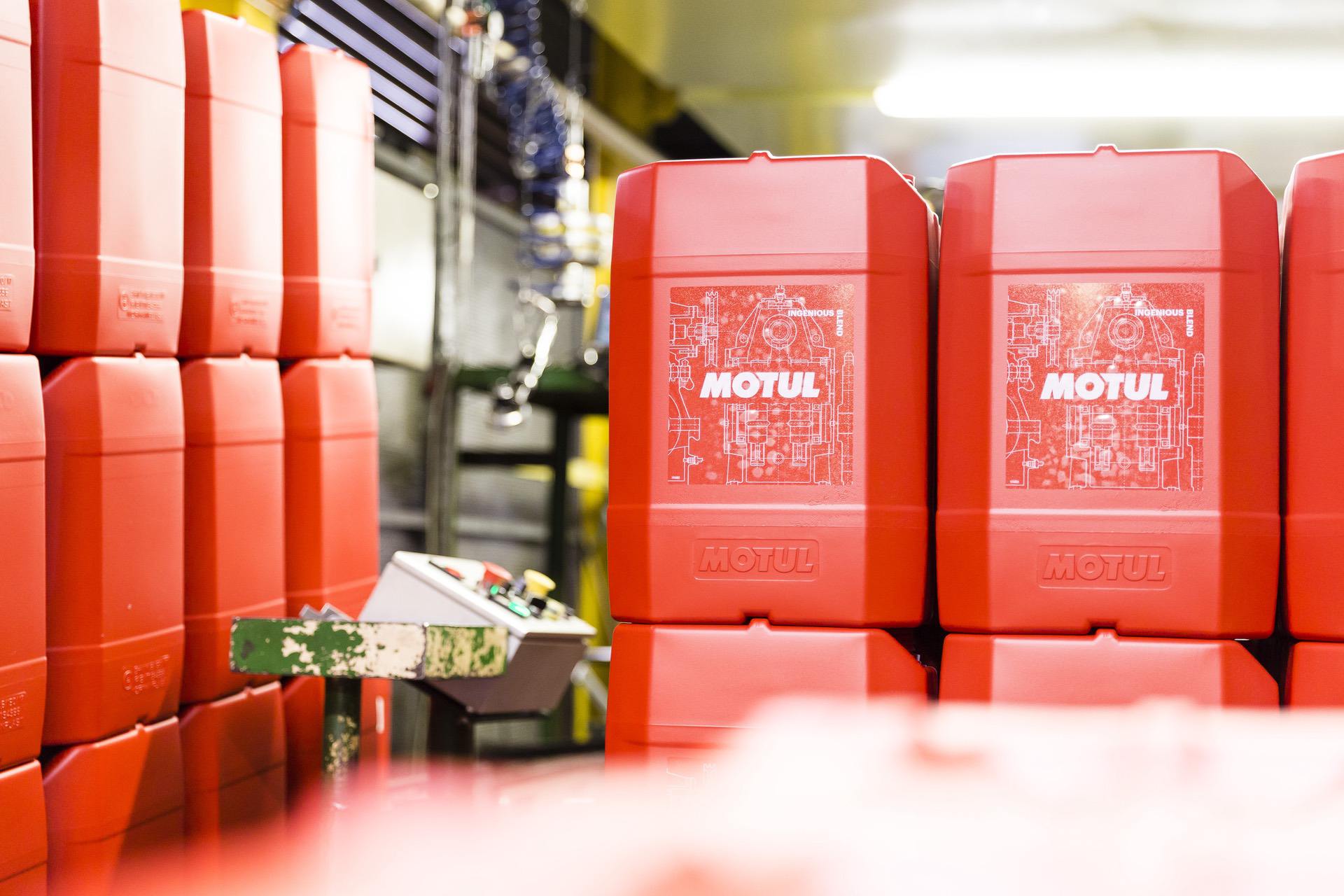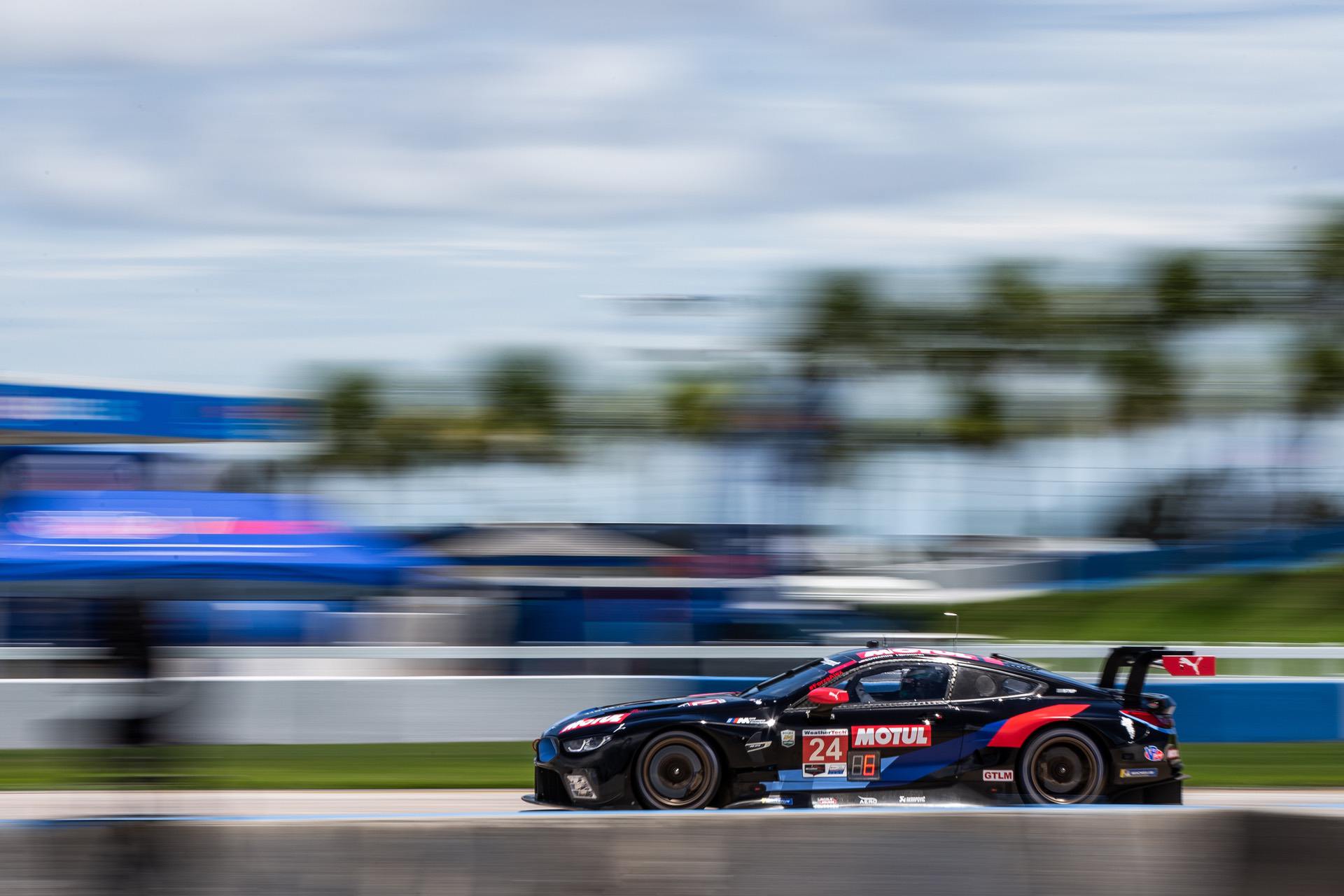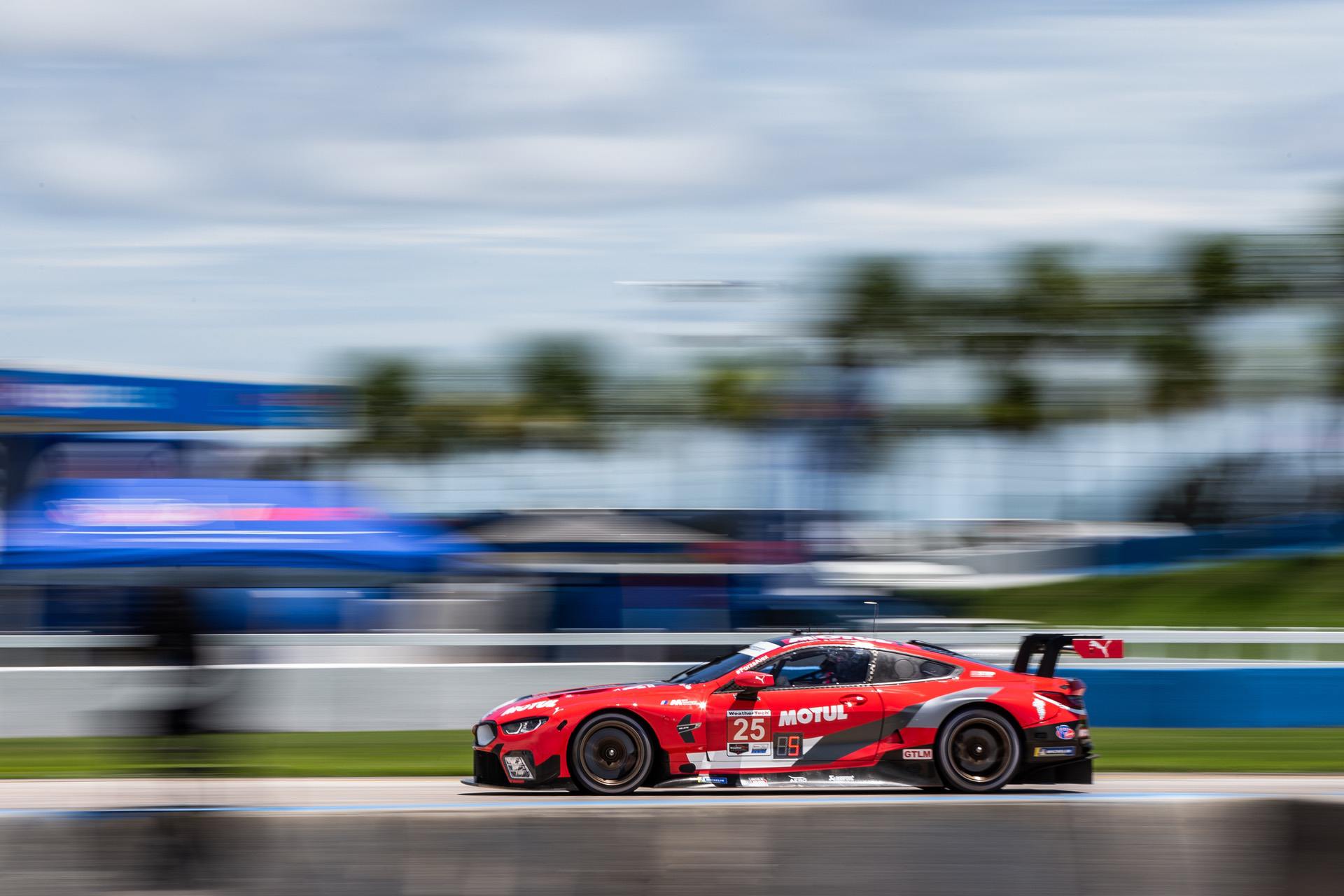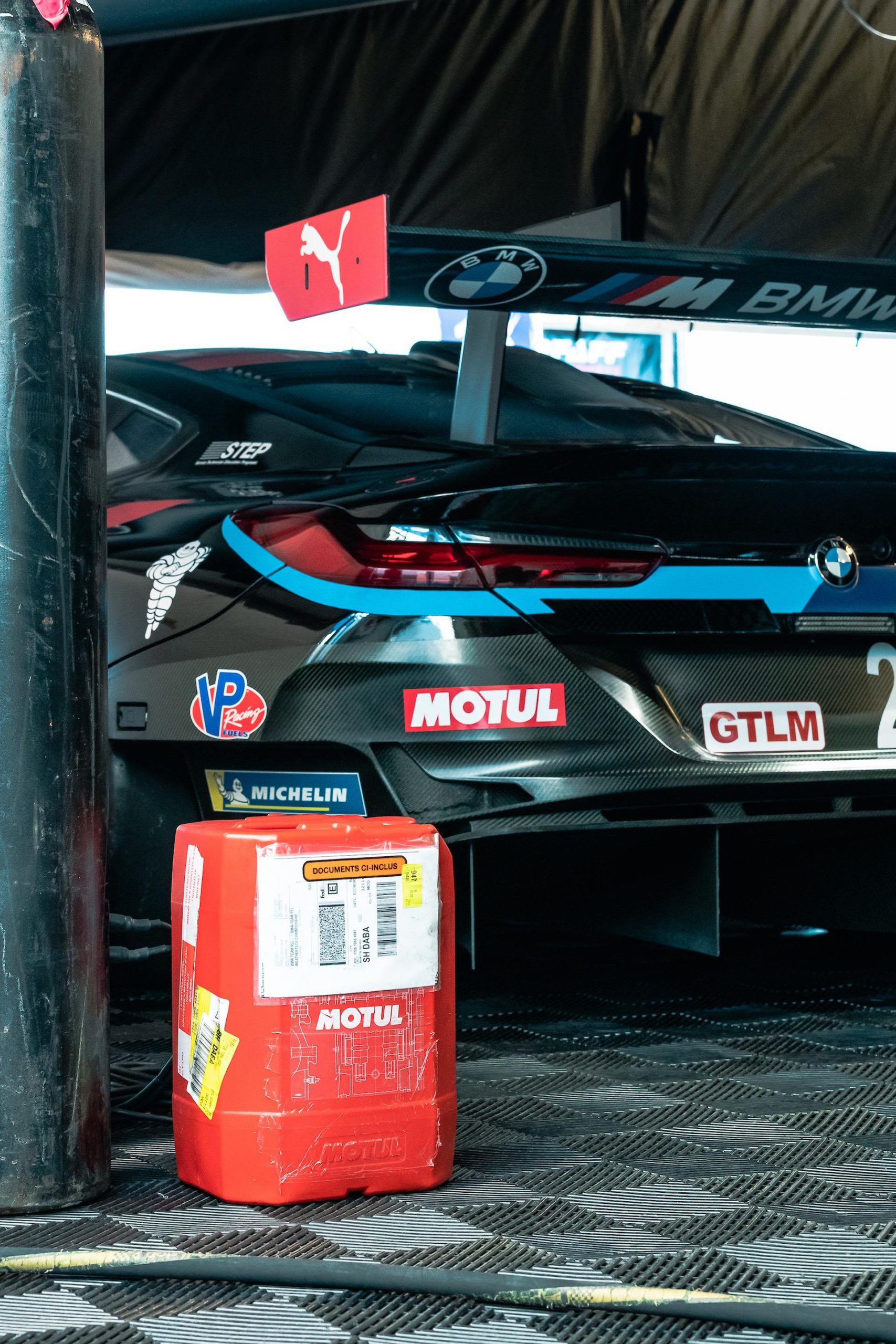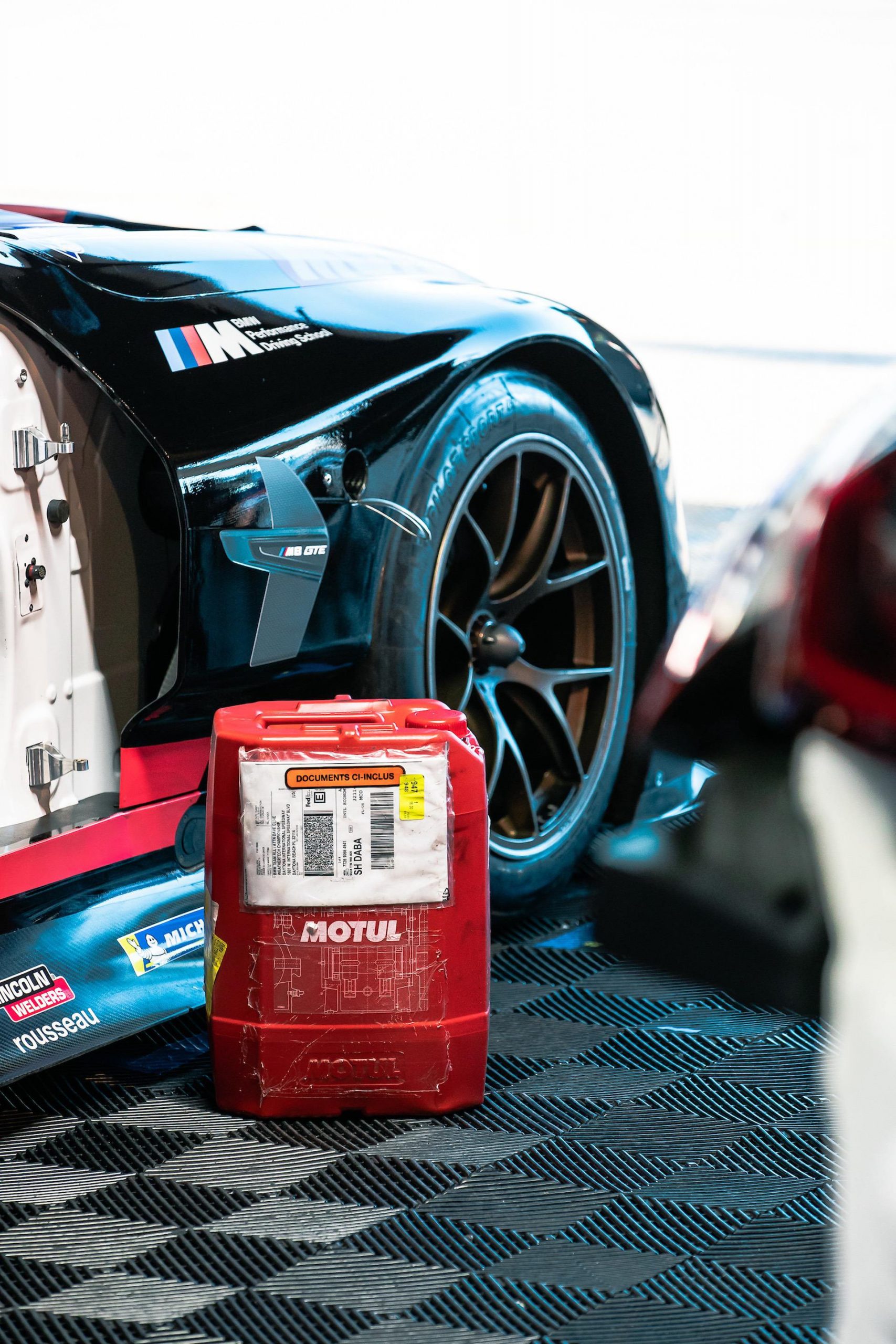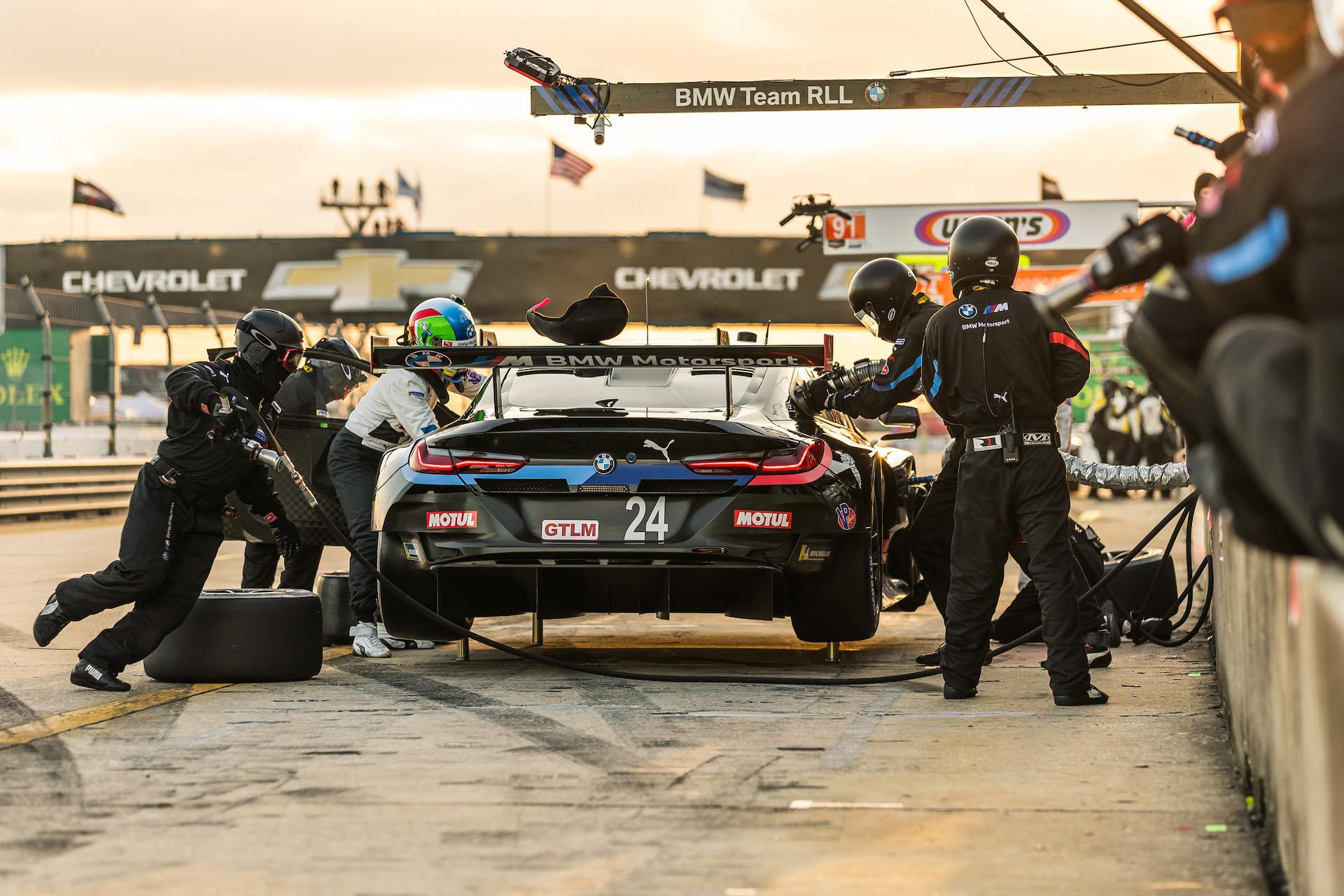MOTUL has been partnered with BMW M Motorsport since January, 2020, developing oils for the Bavarian brand’s motorsport endeavors. It’s been over a year since that partnership began and it’s still going strong. So we decided to check in with the oil maker to discuss the brand’s newest products and how it develops oils for motorsport. On this call, we spoke with Nicolas Demaria, Technical Support Manager for MOTUL Americas.
A Complex Engineering Process
Developing oil for engines, especially motorsport engines, is an incredibly complex process. There are so many factors that can change the performance of an oil; temperatures, engine oil pressures, cylinder designs, piston ring designs, fuel additives, and even the design of the engine itself. For instance, if a racing engine is a V8, for example, the oil pressure can vary slightly between each bank. Or the temperatures of each race can vary wildly. Certain fuels that brands use also run certain additives that can have detrimental effects on the engine oil.
So it’s not as simple as choosing a certain oil viscosity and calling it a day. MOTUL goes through an intense, rigorous process to determine which oil formulation works best with each engine. Which means that MOTUL’s technical team has to have extensive knowledge not only in their own products but also in the engine technologies and specifications for each manufacturer they work with.
A motor race is essentially broken down into three stages; training, qualifications, and then the actual race itself. After each of those stages, MOTUL takes an oil sample from the engines to determine how it performed under those circumstances. Then the data from the race oil is compared to the data that was created during development, to see if anything changed and if any modifications need to be made to the oil. For example, the MOTUL team have already tested lubricant samples from the two BMW M8 GTLM cars in IMSA, following endurances races like Rolex 24 and the recent 12 Hours of Sebring.”
Unfortunately, though, the process of making any changes can’t begin until the season is over. “The development process is so robust that you have to do something very, very wrong to say ‘okay, maybe we messed it up here’ [to make a change mid-season].” said Demaria. The process of developing a new oil for a new engine architecture can be quite long, also. So from the time a manufacturer announces a new engine, “It will happen within a year, depending on the technology and the materials.” Demaria told us.
From Track To Road Use
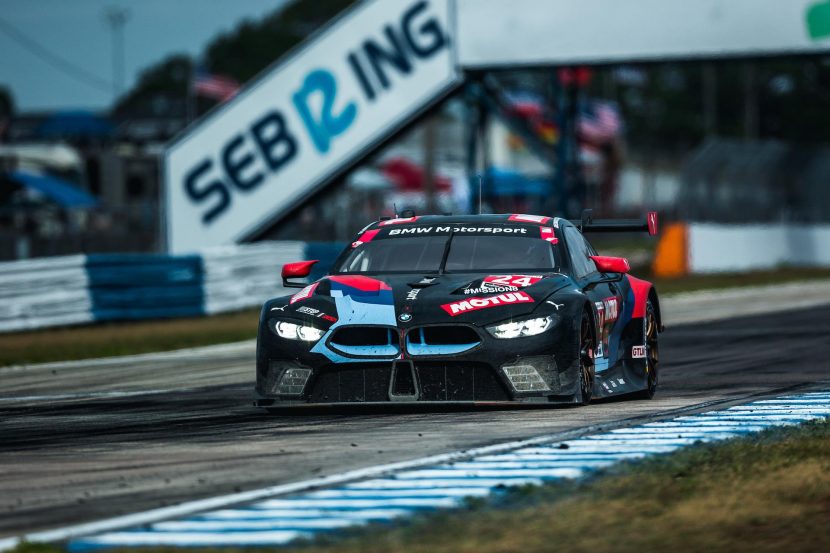
What’s fascinating is how the lessons learned in motorsport translate over to road cars. We always hear that from automakers, how their race cars teach them how to build better road cars. However, you rarely hear about that transition for motor oil. However, as Demaria tells us, racing technology for oil absolutely makes it to the road.
“Some of the stuff that used to be racing oil in the late ’90s, any customer can buy in [MOTUL] 300V nowadays.” he said. Demaria notes that, because engine technology migrates from motorsport to the road, engine oil technology needs to follow.
Read Also: The story behind the partnership between BMW Motorsport and MOTUL
Now, though, exhaust particulate filters are even playing a big role in oil development for modern performance engines. According to Demaria, exhaust particulate filters “are extremely sensitive to ashes, either from the fuel or the lubricant. There’s always going to be a small part of lubricant that gets burned inside the combustion chamber and ends up going into the exhaust stream and ultimately passes through the [catalytic converter or particulate filter].” This forced lubricant manufacturers to pursue different anti-wear and friction modifying additives increasing the oil’s performance while protecting the after-treatment systems.
Engine Oil In Hybrid-Cars Racing
We were also interested in whether hybridization affects oils and it does. According to Demaria, high-efficiency hybrid powertrains often use downsized, heavily turbocharged engines. To make the same sort of power as larger engines, smaller engines with big turbo boost create a ton of extra heat. So oil manufacturers like MOTUL need to compensate for that and develop oils that can handle the heat, withstanding, safely, higher thermal stresses than before.
That’s not just for racing, though. Hybrids also pose an interesting problem for street driving as well, as engines will also be off for long periods of time, leaving the engine oil to sit idly in the sump, but then instantly start back up again, often under high load. So the oil needs to be able to perform its functions at lower than ideal temperatures, challenging the additives.
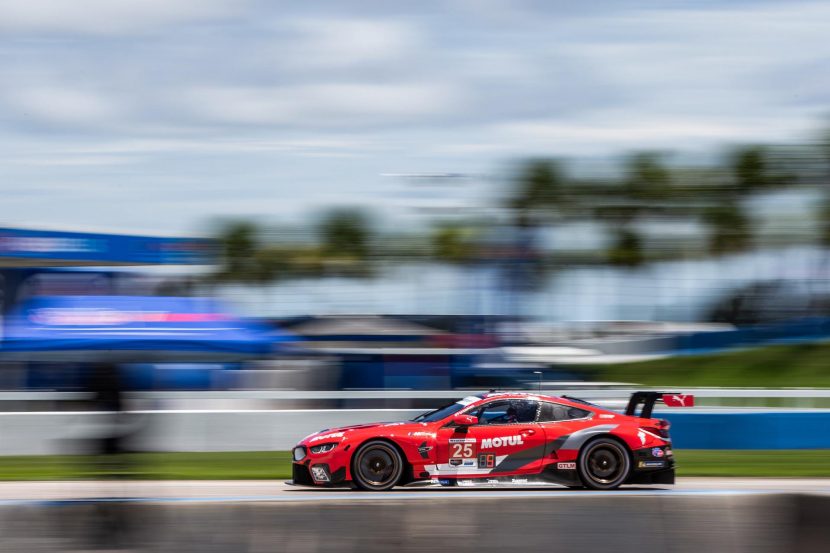
So many drivers and customers feel as if engine oil is just engine oil but there’s so much more science behind it. Much of that science is learned at the race track and then migrates over to road cars. Which is why MOTUL’s partnership with BMW is not only helpful for motorsport right now but the technologies and lessons learned will also be helpful in the future of road cars.








